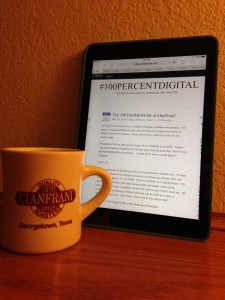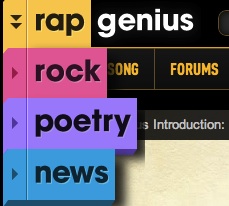In our second Innovators’ Toolkit, “Risk Taking and Managing Student Expectations,” we discussed the challenges of risk-taking in the classroom and strategies to address them. As fellow Richard Bautch reminded me, one of our distinguishing characteristics drawn from our Holy Cross heritage and expressed in our mission is the “courage to take risks”.
Here is a round up of challenges and strategies discussed by our fellows: Continue reading



